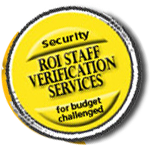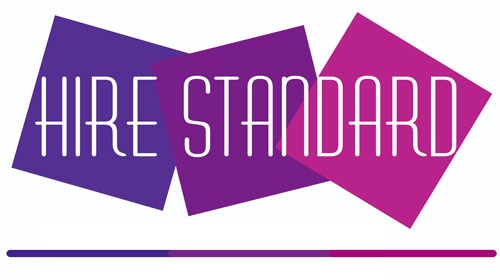 Ready for this? Recent statistics from Statisticbrain.com show 53% of resume and job applications contain falsifications. On top of that, 70% of college students have claimed they would lie on a resume to get a job position that they want. Additionally, 3% of job applicants have been reported to have a misdemeanor records, whereas 7% have a felony record. Still think a background check is unnecessary?
Ready for this? Recent statistics from Statisticbrain.com show 53% of resume and job applications contain falsifications. On top of that, 70% of college students have claimed they would lie on a resume to get a job position that they want. Additionally, 3% of job applicants have been reported to have a misdemeanor records, whereas 7% have a felony record. Still think a background check is unnecessary?
The incremental effects of poor recruitment processes can be substantial. Staff replacement costs can increase; whereas staff morale, trust and respect (with regard to management) may wane. Even worse, workplace crime may become a problem, or a firm may face costly litigation as a result of staff disenfranchisement and friction in HR-employee relationships.
A background check is a crucial part of staffing management, but it is often done under pressure to fill staffing needs quickly. To avoid incurring later cost, employers must exercise due diligence. Information that is hard to find, such as criminal records, academic accreditations, and industry licenses can take time to gather. A thorough check may take up to three days or longer depending on how quickly organizations return your call. School holidays, court house schedules and the completion of appropriate forms can all delay a start date. Additionally, as an employer you must be careful that you do not violate any laws with respect to hiring decisions based on personal information. Here are certain key steps to completing an extensive background check:
- Develop a timeline; note who you have contacted and when you should hear back to avoid items falling through the cracks. A documented timeline can help manage the expectations of hiring managers.
- Ensure the correct forms are sent to contacts to avoid delays and that the forms are legible and complete. Check information such as social security, addresses, names of people and institutions with the candidate if they are unclear. Consider using an online screening firm that will utilize more efficient and quicker systems and processes.
- Know when to stop. You may have enough information to go ahead with the hire without waiting for one last reference. The important items to cover are credit reports, criminal records, school records, and professional references. Consult a lawyer to ensure that your hiring is based on non-discriminatory information.
- Look for red flags such as repeated mistakes with respect to behavior. Be consistent in your background checking and treat every candidate in the same way. Give the candidate a chance to explain; he may have a legitimate explanation that renders him the top candidate despite a discrepancy.
Experience in background checks is invaluable for a fast and effective process. For our professional advice with respect to background checking or to view the background checking services that we offer visit our website or contact us today!
